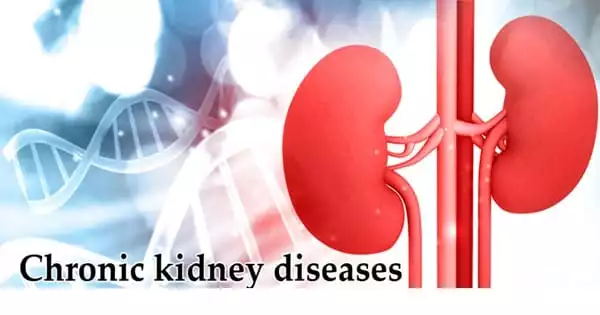Diabetes and hypertension are the leading causes of chronic kidney disease (CKD) worldwide, but epidemics of chronic kidney disease of unknown etiology (CKDu) occur in Central America, Sri Lanka, India, and elsewhere. CKDu has been observed in both men and women, but it is more prevalent in men in the agricultural sector. As a result, while pesticide exposure was initially suspected, chronic heat stress and dehydration are now considered key etiologic factors. A commonly available pesticide has been associated with an increased risk of chronic kidney disease (CKD).
In a University of Queensland study, a commonly used pesticide was linked to an increased risk of chronic kidney disease (CKD). Using data from the National Health and Nutrition Examination Survey in the United States, researchers examined the links between pesticide exposure and the risk of kidney dysfunction in 41,847 people (NHANES).
According to Nicholas Osborne, Associate Professor at the School of Public Health, people exposed to higher levels of the insecticide Malathion, also known as Maldison in Australia, had a 25% increased risk of kidney dysfunction.
A commonly available pesticide has been associated with an increased risk of chronic kidney disease (CKD).
“Nearly one out of every ten people in high-income countries shows signs of CKD, which is permanent kidney damage and loss of renal function,” Dr. Osborne explained.
Age, hypertension, and diabetes are all risk factors for developing CKD.
Although the mechanism by which pesticides affect kidney health has yet to be determined, researchers believe that pesticide accumulation may cause oxidative stress in the kidneys, which leads to CKD. Follow-up studies with a larger group of people are needed to confirm the link.
According to Dr. Osborne, CKD with no known cause is on the rise in low-to-middle-income countries such as India, Sri Lanka, and Mesoamerica. “At first, it was suspected that the condition was caused by exposure to heat stress, dehydration, pesticide spraying, heavy metals, and agrochemicals in agricultural workplaces,” Dr. Osborne said.

Chronic kidney disease (CKD) places a significant burden on the global healthcare system and economy. In the last two decades, a new type of CKD, chronic kidney disease of unknown etiology (CKDu), has emerged as a major health issue in various geographical areas around the world, primarily in the farming community, and has now become a global concern. Despite extensive and numerous research efforts devoted to CKDu, very little is known with certainty about its etiology and the pathophysiology underlying its development.
Recent evidence suggests that agrochemicals and pesticides may play a role in the pathogenesis of CKDu. Organochlorine pesticides (OCPs) are known to be bio-magnified through the food chain due to their longer half-life and lipophilic nature.
However, environmental contamination, pesticide residues, and herbal medicines containing heavy metals may all play a role in CKD. The cause of increased CKD is unknown, but working with contaminated soil and spraying pesticides without personal protective equipment (PPE) have been suggested as possible exposure pathways.
Dr. Osborne stated that the UQ study was the first to show a link between Malathion and the risk of poor kidney health in humans. “The findings suggest that we should limit our exposure to pesticides, even in very small doses, because chronic exposure may result in negative health outcomes,” said Dr. Osborne. “We will continue to look into whether other pesticides are involved, and we plan to collect data on Sri Lankan farmer behaviors to examine their level of exposure when using pesticides in the field.”
Malathion is approved for use in agriculture, domestic, and public recreation areas as part of mosquito and fruit fly eradication programs, and it is also found in some topical head lice treatments. Some study reports by the authors and a few others comprise an important body of evidence depicting the association between chronic exposure to OCPs and the occurrence of CKDu through environmental contamination in farming and non-farming communities in various geographical areas around the world.
Agriculture’s critical importance is widely acknowledged, as is the utility of pesticides in increasing agricultural yields and lowering spoilage rates. Pesticides are also well known for their effectiveness in controlling disease-carrying pests (for example, mosquitos). There are, however, risks associated with pesticide use. They are linked to an increased risk of cancer, among other diseases, in addition to causing acute poisoning.





